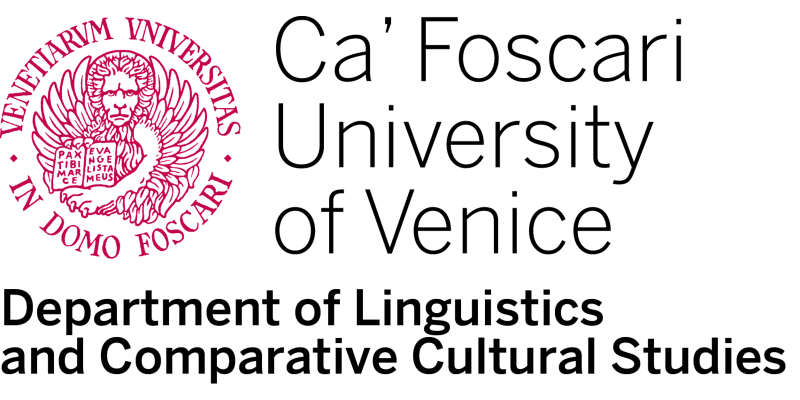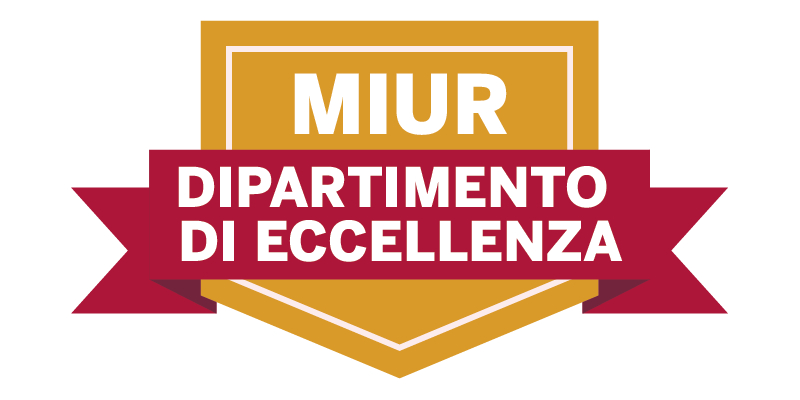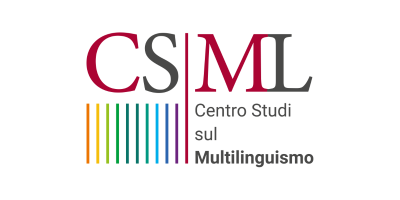About
The Department of Linguistics and Comparative Cultural Studies (DSLCC) at Ca’ Foscari University of Venice will host a conference on language attitudes and bi(dia)lectal competence, which will be held on September 12-13, 2022 in presence and on Zoom.
The LABiC 2022 conference is intended to address the topic of bilingualism with local languages (i.e minority languages, dialects or local varieties) both in the Italian and international context, taking language attitudes and linguistic competence in bi(dia)lectals as prime focus of our discussion, but also starting point for further developments.
The conference aims at bringing together sociolinguistic, variationist, biolinguistic and cognitive approaches to the study of bilingualism with local languages, by gathering contributions that provide different outlooks on this complex and fascinating phenomenon.
The official language of the conference will be English.
- Kleanthes Grohmann (University of Cyprus)
- Bernardette O’Rourke (University of Glasgow)
- Antonella Sorace (University of Edinburgh)
- Marco Tamburelli (Bangor University)
- Giuliana Giusti - DSLCC, Ca’ Foscari University of Venice
- Gianluca Lebani - DSLCC, Ca’ Foscari University of Venice
- Piergiorgio Mura - PhD candidate at DSLCC, Ca’ Foscari University of Venice
- Cristina Procentese - PhD candidate at DSLCC, Ca’ Foscari University of Venice
- Francesca Santulli - DSLCC, Ca’ Foscari University of Venice
- Silvia Calamai (Università di Siena)
- Massimo Cerruti (Università degli Studi di Torino)
- Leonie Cornips (Maastricht University)
- Federica Guerini (Università degli Studi di Bergamo)
- Tanjia Kupisch (Universität Konstanz)
- Antonietta Marra (Università degli Studi di Cagliari)
- Stefania Marzo (KU Leuven)
- Jason Rothman (UiT The Arctic University of Norway)
Programme
| Conference programme | 242 K |
Participation is open and free, but registration is highly recommended.
Please fill in this online form.
- 09:00-10:00 Keynote Lecture Antonella Sorace (University of Edinburgh): 'Joining the dots: attitudes, language change, and cognition in bilingual speakers of minority languages’
- 10:00-10:30 Mila Vulchanova and Valentin Vulchanov (Norwegian University of Science and Technology, Trondheim, Norway): ‘The nature and effects of Norwegian diglossia’
- 10:30-11:00 Angélique Jaber1,2, Chiara Branchini3, Carlo Geraci2, Beatrice Giustolisi4 e Caterina Donati1 (1Université Paris Cité; 2Institut Jean Nicod, École Normale Superiéure 2 ; 3Ca’ Foscari University of Venice; 4University of Milano Bicocca): ‘Processing congruent and incongruent code-blend: Evidence from LIS-Italian and LSF-French’
- 11:00-11:30 Coffee break
- 11:30-12:00 Geraldine Quartararo (Pontifical Catholic University of Valparaíso, Chile): ‘Contact phenomena between Aymara and Spanish: the grammatical replication of ‘ir a + infinitive’
- 12:00-12:30 Valeria Baruzzo (Alma Mater Studiorum, University of Bologna): ‘Varieties of Spanish in contact: sociolinguistic accommodation of a group of young Western-Andalusians in Madrid’
- 12:30-13:00 Cristina Procentese, Vincenzo Nicolò Di Caro and Gianluca E. Lebani (Ca’ Foscari University of Venice): ‘Assessing language dominance in Italo-Romance bilectals with the Dilalic Language Profile: a preliminary pilot study’
- 13.00-14:30 Lunch
- 14:30-15:30 Marco Tamburelli (Bangor University): 'Attitudes reversed: how Ausbau-centric approaches hinder the maintenance of linguistic diversity and why we must rediscover the role of Abstand relations'
- 15:30-16:00 Chiara Ardoino (Queen Mary University of London): ‘Do Martinicans speak two languages? Testing perceptions of language boundaries in a linguistic (semi?)-continuum’
- 16:00-16:30 Vincenzo Nicolò Di Caro (Ca’ Foscari University of Venice): ‘How different are Italian and Sicilian in terms of Abstand? Some evidence from the central dialect of Delia and some proposals for Sicilian bilectal speakers’ metalinguistic awareness’
- 16:30-17:00 Coffee break
- 17:00-17:30 Piergiorgio Mura (Ca’ Focari University of Venice): ‘Language attitudes in Sardinia: students’ perceptions in a context of bilingualism with a minority language’
- 17:30-18:00 Vittorio Ganfi1,2 and Maria Simoniello2 (1Roma Tre University; 2University of international studies of Rome): ‘Effects of national language policy on local varieties: Campanian and Sicilian case studies’
- 9.00–10:00 Bernadette O’Rourke (University of Glasgow): 'New dynamics in minority language revitalisation: changing ideologies and practices'
- 10:00-10:30 Gorka Basterretxea Santiso and Annie Ornelles (Georgetown University, Washington): ‘Comparison of Basque and Galician Linguistic Landscapes: Perceptions and Preferences’
- 10:30-11:00 Coffee break
- 11:00-11:30 Alexandra Besler1, Ilaria Venagli1, & Tanja Kupisch1,2 (University of Konstanz; UiT The Arctic University of Norway): ‘Sicilian as a heritage language in Germany – Attitudes and maintenance outside of Italy’
- 11:30-12:00 Fabio Ardolino (University of Siena): ‘Social attitudes and dialect phonetic attrition in Italian abroad communities: a study on the Italian migrants in Aix-Marseille’
- 12:00-12:30 Ilaria Porru (CUNY Graduate Center): ‘Does Italian dominance affect Sardinian phonology? A case study of Southern Campidanese’
- 13.00-14:30 Lunch
- 14.00-15:00 Kleanthes K. Grohmann (University of Cyprus): ‘BIG Developments: Bilectal Investigations of Grammar and (A)typical Language Acquisition’
- 15:00-15:30 Theodora Papastefanou and Elena Theodorou(Cyprus University of Thecnology): ‘Narrative abilities of Cypriot-Greek children with and without developmental language disorder: implications for clinical practice’
- 15:30-16:00 Coffee break
- 16:00-16:30 Emanuela Atz1 and Cecilia Varcasia2 (1Centri Linguistici della Provincia di Bolzano; 2Free University of Bolzano): ‘Multilingual literacy and metalinguistic reflection in primary school’
- 16:30-17:00 Laura Baranzini1, Luca Cignetti2, Simone Fornara2 AND Elisa Désirée Manetti2 (1Osservatorio linguistico della Svizzera italiana; 2The University of Applied Sciences and Arts of Southern Switzerland, SUPSI): ‘How is the usage of the Swiss variety of Italian perceived in the educational context? First outcomes of the project Repertorio lessicale dei regionalismi d’uso scolastico della Svizzera italiana (RepSi)’
If you wish to attend online, registration is mandatory.
The link to the conference is the following: https://unive.zoom.us/j/81490048545.
Venue
LABiC 2022 will be held at Sala B in Ca’ Bernardo.
Travel information
- From Marco Polo Venice Airport, you can take the ACTV road bus or ATVO road bus that end at Piazzale Roma road taxi and bus terminal. Both buses leave from the platforms outside the arrival hall of the Airport. The drive takes about 25 minutes.
Information about the timetable and prices is available at ACTV website and at ATVO website. - From Marco Polo Venice Airport, you can also reach the centre of Venice by taking the Alilaguna waterbus, a direct service between the Marco Polo Airport and the Venice centre.
Further information about the Alilaguna waterbus is available at Alilaguna website.
To take the waterbus from the Airport walk down towards the dock following the pedestrian instructions (about 12 minutes).
Call for papers
Bilingual or multilingual contexts including one or more minority languages, dialects or local varieties deserve special attention in linguistic research. In fact, the asymmetry in terms of linguistic status between such varieties and standard national languages has an impact on various phenomena, which range from socio-political and identity issues to dynamics of language use and contact in bi(dia)lectal grammatical and cognitive systems. The conference is aimed at gathering together work on bilingualism with local languages both in the Italian and international context, with a particular interest in the sociolinguistic and biolinguistic approaches.
Research questions
We welcome contributions related (but not limited) to the following research questions:
- What is the relationship between language prestige, linguistic competence and use?
- How are local languages perceived, and how are attitudes towards them influenced by the social context(s)?
- In asymmetrical bilingualism, what impact do institutional language policies have on the status of local languages and their vitality?
- How are non-standard varieties (dialects and local languages) mentally represented? Are there differences from the mental representation of standard varieties?
- What are the characteristics of grammars (phonology, lexicon, morphology, syntax) in terms of inter- and intra-linguistic variation, linguistic interference, grammatical hybridity in bilinguals with local languages?
- When the bilingual speaker has more than one form available, what are the dimensions of variation and optionality that can be observed?
- Does bilingualism with local languages entail the same cognitive benefits of bilingualism as traditionally understood?
Submission guidelines
Abstracts up to 2 pages (minimum 11pt, including references, examples, graphs or tables) must be written in English. Submissions are limited to a total of two abstracts, one individual and one joint. Presentations will last 20 minutes, followed by 10 minutes for discussion.
Anonymous abstracts should be sent by April 29th as pdf-files by e-mail to labic@unive.it. The object of the message must be: submission to LABiC22. The text of the message should include title, author(s) and affiliation.
Important dates
Deadline for abstract submission: April 29, 2022
- Notification of acceptance: June 1, 2022
- Conference dates: September 12-13, 2022
Contacts
Ca' Foscari University of Venice, Department of Linguistics and Comparative Cultural Studies (DSLCC)
Ca' Bembo, Dorsoduro 1075, 30123 Venice - Italy




